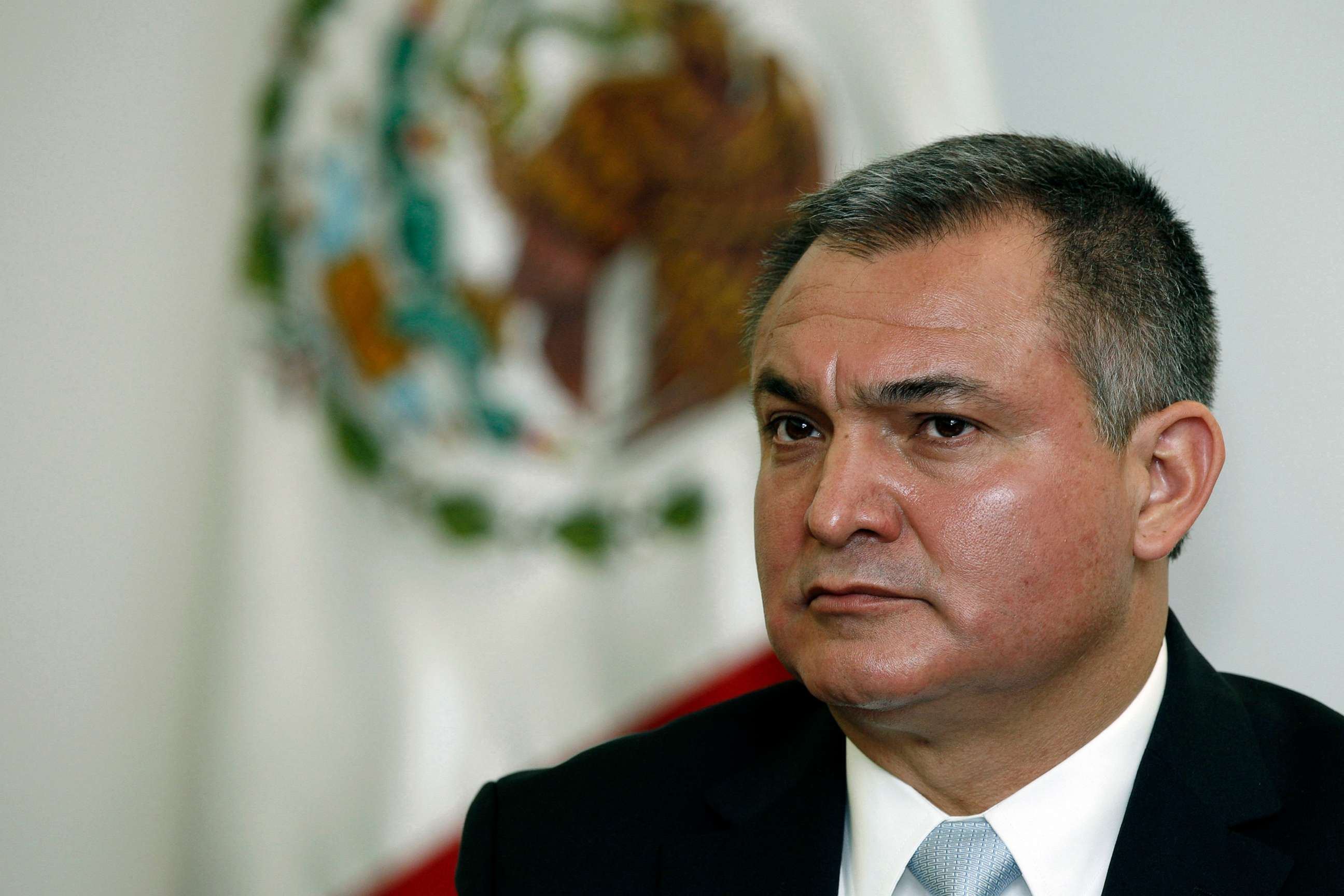Mexico's former top cop convicted of taking payoffs to shield drug cartels
The verdict comes with a mandatory minimum sentence of 20 years’ imprisonment.
Genaro Garcia Luna, secretary of public security in Mexico from 2006 to 2012, was found guilty Tuesday by a federal jury in Brooklyn, New York, of engaging in a continuing criminal enterprise that included six drug-related violations.
The verdict followed a four-week trial and comes with a mandatory minimum sentence of 20 years' imprisonment.
"Garcia Luna, who once stood at the pinnacle of law enforcement in Mexico, will now live the rest of his days having been revealed as a traitor to his country and to the honest members of law enforcement who risked their lives to dismantle drug cartels," said U.S. Attorney Breon Peace.
"It is unconscionable that the defendant betrayed his duty as Secretary of Public Security by greedily accepting millions of dollars in bribe money that was stained by the blood of Cartel wars and drug-related battles in the streets of the United States and Mexico, in exchange for protecting those murderers and traffickers he was solemnly sworn to investigate."

Garcia Luna was the equivalent of the FBI Director in Mexico and, in that time, used his official positions to assist the violent Sinaloa drug cartel in exchange for millions of dollars in bribes, prosecutors said.
"Criminal organizations cannot function at the level of the Sinaloa drug cartel without the support of corrupt politicians and officials such as Genaro Garcia Luna who aid and abet them," said HSI New York Special Agent in Charge Ivan Arvelo.
Prosecutors said at trial Garcia Luna provided safe passage for cocaine shipments, tipped the cartel to investigations and helped attack rivals. He was paid in U.S. currency — $100 bills in bundles of $10,000 at times — stuffed variously in a suitcase, briefcases and duffel bags. The bribe amounts increased over the years as the Sinaloa cartel grew in size and power.
Garcia Luna, 54, moved to the United States in 2012. He lied about his criminal conduct on an application for naturalization in 2018, prosecutors said.




